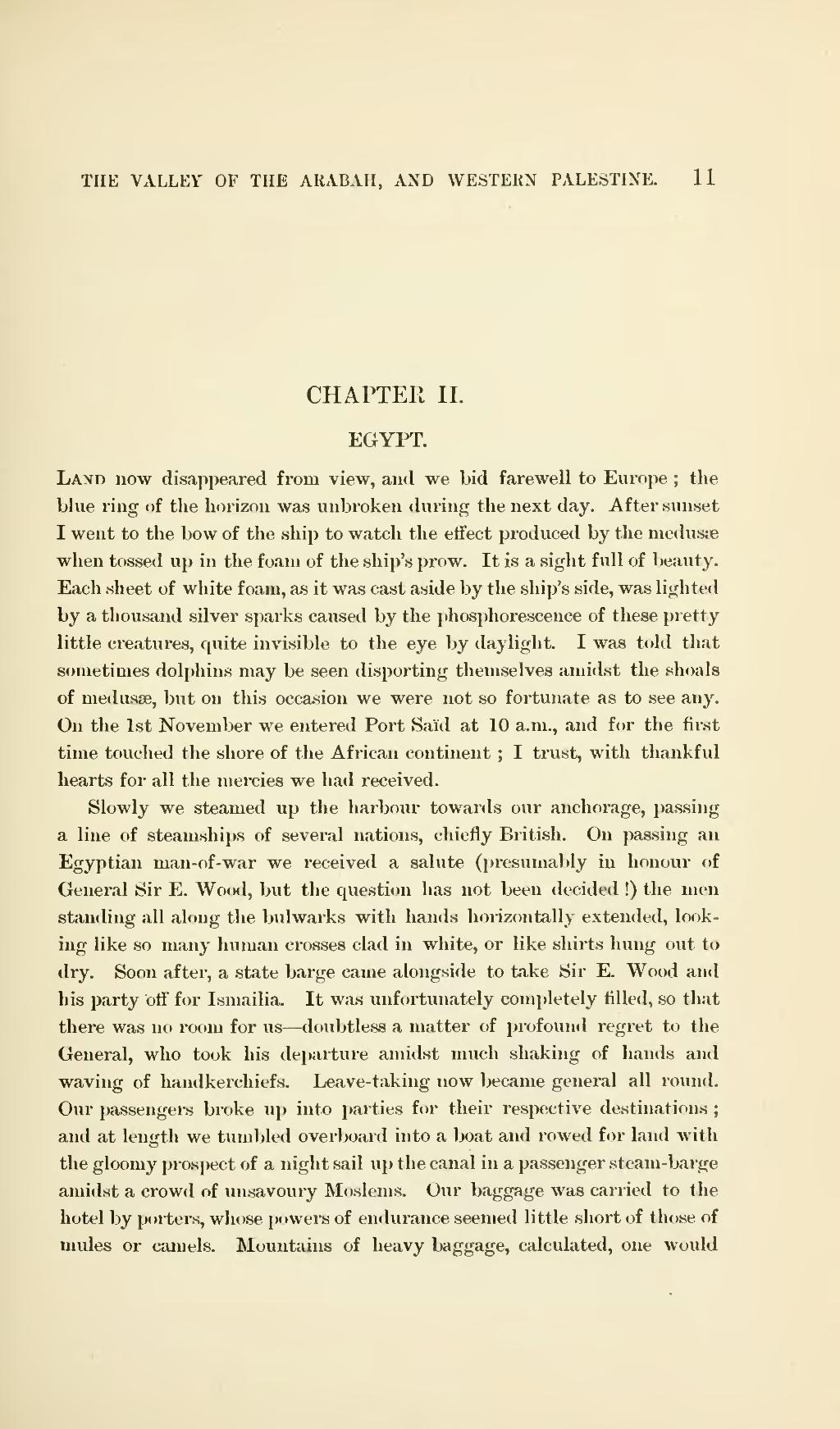CHAPTER II.
EGYPT.
Land now disappeared from view, and we bid farewell to Europe; the blue ring of the horizon was unbroken during the next day. After sunset I went to the bow of the ship to watch the effect produced by the medusæ when tossed up in the foam of the ship’s prow. It is a sight full of beauty. Each sheet of white foam, as it was cast aside by the ship’s side, was lighted by a thousand silver sparks caused by the phosphorescence of these pretty little creatures, quite invisible to the eye by daylight. I was told that sometimes dolphins may be seen disporting themselves amidst the shoals of medusæ, but on this occasion we were not so fortunate as to see any. On the 1st November we entered Port Saïd at 10 a.m., and for the first time touched the shore of the African continent; I trust, with thankful hearts for all the mercies we had received.
Slowly we steamed up the harbour towards our anchorage, passing a line of steamships of several nations, chiefly British. On passing an Egyptian man-of-war we received a salute (presumably in honour of General Sir E. Wood, but the question has not been decided!) the men standing all along the bulwarks with hands horizontally extended, looking like so many human crosses clad in white, or like shirts hung out to dry. Soon after, a state barge came alongside to take Sir E. Wood and his party off for Ismailia. It was unfortunately completely filled, so that there was no room for us—doubtless a matter of profound regret to the General, who took his departure amidst much shaking of hands and waving of handkerchiefs. Leave-taking now became general all round. Our passengers broke up into parties for their respective destinations; and at length we tumbled overboard into a boat and rowed for land with the gloomy prospect of a night sail up the canal in a passenger steam-barge amidst a crowd of unsavoury Moslems. Our baggage was carried to the hotel by porters, whose powers of endurance seemed little short of those of mules or camels. Mountains of heavy baggage, calculated, one would
